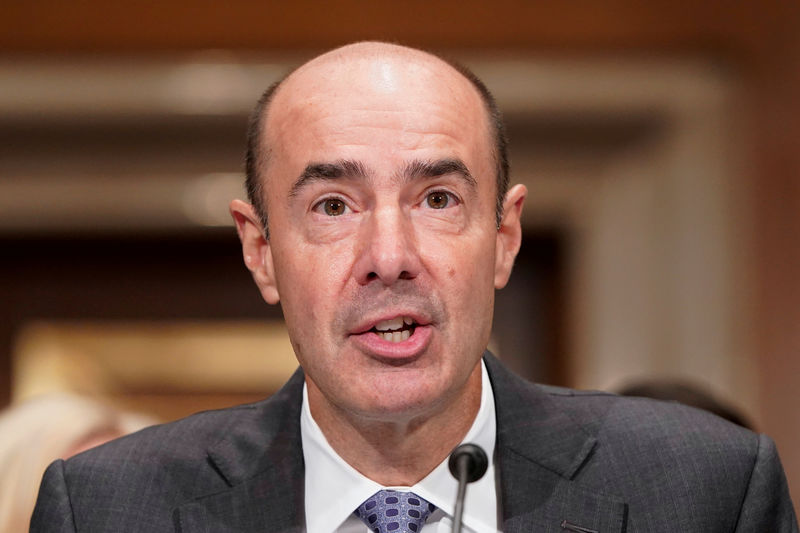By Daniel Wiessner
(Reuters) - The Republican-led U.S. Senate on Thursday voted to confirm Eugene Scalia, a prominent lawyer with a long record of challenging government regulations on behalf of companies and trade groups, to be the next U.S. labor secretary.
The Senate voted 53-44 to approve President Donald Trump's nomination of Scalia over the objections of Democrats and advocacy groups who say he has spent his career undermining worker protections and is unfit for the job.
Scalia, the son of late U.S. Supreme Court Justice Antonin Scalia, is a Washington-based partner at the law firm Gibson Dunn & Crutcher.
Republicans and many business groups who supported the nomination have said Scalia's three decades of experience in labor and employment law make him uniquely qualified to head the U.S. Department of Labor.
Scalia, 56, has defended dozens of large companies, including Walmart (NYSE:WMT) Inc, Facebook Inc (NASDAQ:FB) and Bank of America Corp (NYSE:BAC), in lawsuits brought by employees. He could not immediately be reached for comment on his Senate confirmation.
Scalia's predecessor, Alexander Acosta, resigned in July amid criticism of his handling of a sex-trafficking case against billionaire Jeffrey Epstein when he was a federal prosecutor. Acosta's deputy, Patrick Pizzella, has been serving as acting secretary of labor.
In addition to high-profile corporate cases, Scalia has represented trade groups including the U.S. Chamber of Commerce, the country's largest business lobby, in successful challenges to federal labor and financial regulations, some adopted following the 2008 financial crisis.
Some Democrats in the Senate said they opposed Scalia's nomination because his record suggested he would not vigorously enforce labor laws and would adopt business-friendly policies.
Senate Minority Leader Chuck Schumer, a Democrat from New York, called the nomination "a disgrace" in comments on the Senate floor. He cited Scalia’s past opposition to increasing the minimum wage and to regulations designed to protect workers with disabilities.
At a confirmation hearing last week, Scalia told a Senate panel his views were not always in lockstep with the business community. He said he had spent much of his career doing "unseen" work helping companies comply with labor laws.

Scalia also noted his stint as solicitor of labor, the Labor Department's top lawyer, during the George W. Bush administration and several cases in which he represented workers for free.